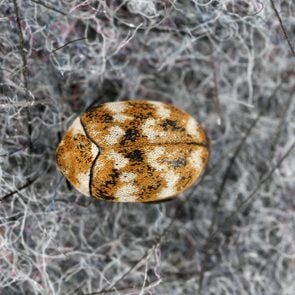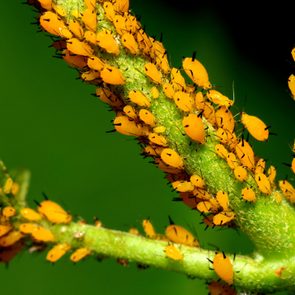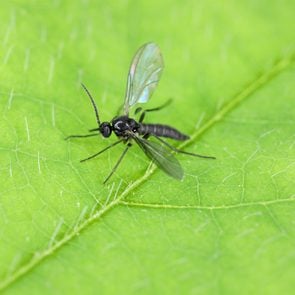This TikTok Hack Promises to Get Rid of Wasps, but Is It Actually Safe?
Updated: Sep. 29, 2023
Before you head to the gas station to get what you need for this wasp-killing TikTok trick, read up on these safety guidelines
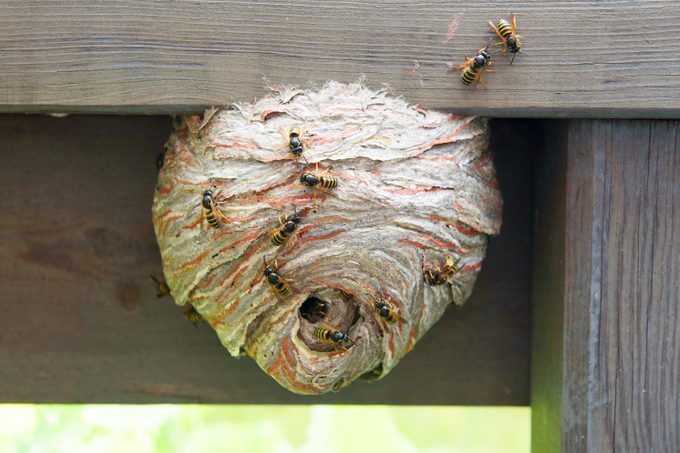
We love everything about the great outdoors … except maybe the bugs. Yes, we know they serve an important function in the ecosystem and all, but we’d really prefer not to have spiders, mosquitos and other winged things crash our outdoor activities. Our least favorite of the bunch? Wasps, which spend the winter hibernating, the spring laying eggs and growing colonies, and summer living their best lives and terrorizing us. And they’re not done once fall hits. They often persist well into October and then—gasp!—cozy up in corners of your house during the colder months.
While there are numerous ways to remove a wasp nest, one popular method, using gasoline, has been circulating on TikTok. The hack, as demonstrated in a video from Brielle McGruber that’s received more than 7.4 million views to date, uses a container of gasoline to fumigate the wasps in their nest. But while it looks easy and effective, it’s left viewers wondering about its safety.
Intrigued? Here’s everything you need to know about this viral wasp-killing hack.
Get Reader’s Digest’s Read Up newsletter for more helpful hacks, humor, cleaning, travel, tech and fun facts all week long.
How does gasoline get rid of wasp nests?
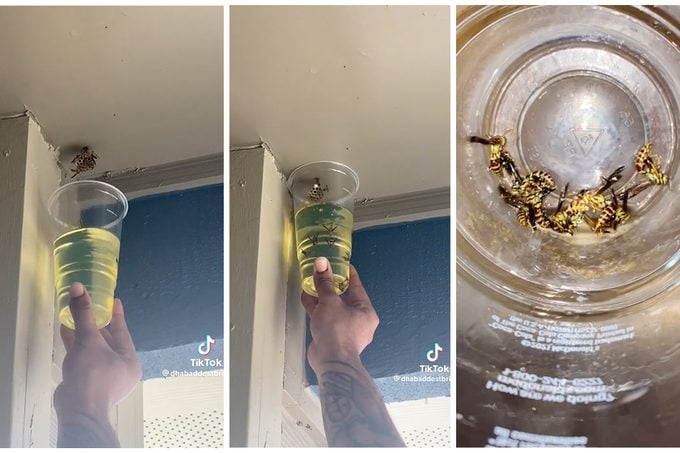
In McGruber’s viral TikTok video, a person simply holds a cup filled with gasoline up to a wasp nest, placing the cup against the ceiling so that it fully envelops the nest. Within seconds, the wasps fall down into the gasoline and die. McGruber then shows viewers the dead wasps after having presumably drained the gasoline and scraped off the now wasp-less nest.
So what actually kills the wasps? The fumes from the gasoline.
Is it safe to use gasoline to kill wasps?
While the hack does appear to work, it’s dangerous. Not only is gasoline flammable, but the fumes can be hazardous as well. Another thing that makes this hack risky is that it involves putting gasoline in unapproved containers. For example, gas will melt certain materials like polystyrene, or No. 6 plastic, which is used to make styrofoam and things like Solo cups, leaving you with spilled fuel near or in your home. FYI, gasoline should never be stored in anything other than an approved container, which is typically made out of high-density polyethylene (HDPE, No. 2 plastic) or metal. Using an unapproved container for gasoline can pose a fire risk.
Whenever you use gasoline at home, it’s also a good idea to have good personal protection equipment, such as a mask or respirator, gloves and safety glasses. Always have a fire extinguisher on hand, and never use or store gasoline around heat sources or open flames. Keep children and pets away too.
Finally, remember that gasoline needs to be disposed of properly. As New York’s Department of Environmental Conservation points out, gasoline is “highly flammable and extremely toxic” and should never be poured into a typical household garbage, recycling, storm drain or soil. Instead, either recondition uncontaminated gasoline for future use or call your local hazardous waste program through your town or county government.
There are safer yet still effective ways to kill wasps, like insecticides made specifically for that task. Many of those products will also let you spray the nest from a safe distance so you can reduce the risk of getting stung.
Nontoxic alternatives to kill wasps
Luckily, there are a ton of safer options at your disposal. Of course, you can use a regulated store-bought spray in the late evening or early morning, which is when they’re more likely to be in their nests. For a more “natural” wasp killer, try using Dawn dish soap and water. Additionally, you can try capturing the queen during springtime. A little foresight can go a long way in preventing wasp invasions in the future.
Finally, consider leaving a wasp nest alone if it isn’t too close to your home. Wasps provide natural pest control and pollination, like bees. According to the U.K.’s National History Museum, “wasps are hugely beneficial to their native ecosystems due to the sheer amount of insects they capture.” So if they pose no immediate threat to you, why not let them perform pest control on your behalf? If you’re really feeling the love, you could even plant a pollinator garden for them. Your whole yard and ecosystem will be happier for it.
Source:
- New York State Department of Environmental Conservation: “Gasoline Disposal”
- National History Museum: “What do wasps do?”
